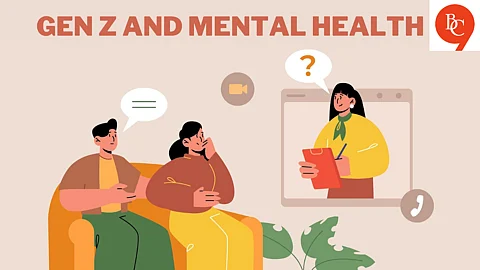

Whether it’s fearing a life-threatening illness after a simple headache or feeling triggered by a stranger’s medical journey online, more Gen-Zs are finding themselves stuck in a cycle of doomscrolling, overthinking, and self-diagnosing.
But what’s driving this new wave of anxiety around health? And is social media helping raise awareness—or quietly feeding the fear?
What Is Health Anxiety?
Health anxiety, often called hypochondria in older terms—is a condition where people obsessively worry about having or developing a serious illness, despite medical reassurance.
While health anxiety has existed for decades, the way it shows up in Gen Z is different—fueled by constant online exposure to health content, medical influencers, and alarming headlines.
How Social Media Fuels the Fire
1. Algorithmic Overload
Once you engage with a post on mental illness, cancer, or chronic illness—even out of curiosity—the algorithm starts pushing similar content your way. A single reel about PCOS can snowball into a feed filled with fertility scares, hormonal disorders, and worst-case health scenarios.
2. Medical Influencers & “PatientTok”
TikTok and Instagram are filled with well-meaning creators who share personal stories about health issues—from autoimmune diseases to brain tumors. While some of these are empowering and raise awareness, others unintentionally cause comparative panic.
3. Google, the Modern Doctor
Search engines can’t offer context. A search for “tingling in fingers” might lead you down a rabbit hole ending in “multiple sclerosis” or “stroke”—causing unnecessary alarm. Social media often magnifies this, offering anecdotal stories that appear more relatable (and terrifying).
4. Viral Fear Trends
“What I wish I knew before my cancer diagnosis”
“Signs I ignored that almost killed me”
“This disease has no symptoms until it’s too late”
Such trending formats blur the line between awareness and alarmism.
The Gen Z Mindset: A Perfect Storm?
Gen Z is already facing a unique cocktail of stress:
Post-pandemic trauma
Rising academic and job market pressure
Climate anxiety
Information overload
Growing mental health struggles
Now add to that an increased hyper-awareness of bodily symptoms—and it’s no surprise that health anxiety is rising among this demographic.
What Can Help?
1. Curate Your Feed – balanced information and mental well-being.
2. Practice Mindful Scrolling - “Is this relevant to me, or am I borrowing fear that doesn’t belong to me?”
3. Use the 24-Hour Rule
Feeling anxious about a symptom? Wait a day before Googling or acting on it. Many minor issues resolve themselves and don't need panic-fueled research.
4. Limit Symptom Searches - Use trusted medical platforms (not Reddit)
5. Talk to a Therapist
CBT (Cognitive Behavioural Therapy) can be highly effective for managing health anxiety
Raising health awareness is a positive trend—but for Gen Z, the constant stream of medical content can sometimes do more harm than good. Social media isn’t inherently bad—it’s how we engage with it that makes all the difference.
